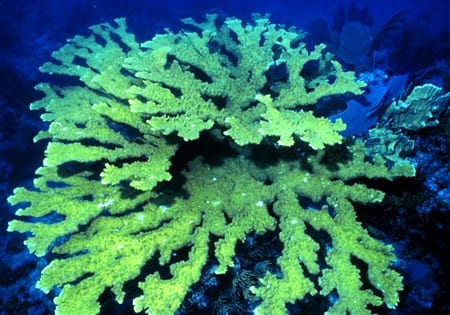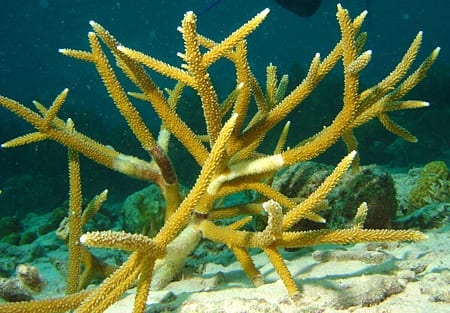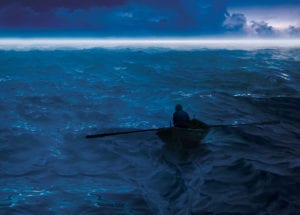By Daniel de la Calle
»Could the protection of marine areas be counterproductive? That is what Professor Ray Hilborn, from the University of Washington’s School of Aquatic and Fisheries Sciences, believes. Professor Hilborn stated in late February during an interview for an Australian radio station. You can read the transcript HERE and listen to the interview HERE.
While some of his arguments are somewhat interesting I could not agree less with them. Protecting land, lakes, rivers and seas is always a good idea and has proven to be visibly effective: beneficial. To claim that this will increase fish and seafood demand from parts of the world (China, Thailand or Brazil) where fishing and farming is not properly done just means some measures need to be taken about food imports. The rest is demagogic. The US, Australia or the EU could easily ban such imports, take measures, work with producing countries on production and quality control, impose sanctions. To affirm that marine reserves do nothing other than appease people’s consciences and deviate us from global problems like Ocean Acidification is first of all not true. Since when is a good policy the one responsible for bad practices in other areas? We could perfectly well be protecting marine areas while we finally began taking worldwide factual measures. I simply cannot see how setting up good examples and leaving some parts of the world in peace from the stress we cause upon them is in any way detrimental. Let’s move the discussion to terra firma: would Professor Hilborn suggest to act in the same fashion in his country’s National Parks? Should hunting and controlled farming be allowed in Yosemite and Yellowstone? I think the problem for the nth time is that we persist in looking at the seas of the world with different eyes from the way we see land, that is why we continue using them as “magical” dumps and we are depleting them in the style hungry teenagers go through their parent’s fridges some Saturday nights.
»The Center for Biological Diversity filed a formal notice of intent to sue the National Marine Fisheries Service this week “for failing to develop a recovery plan for two species of coral, elkhorn and staghorn, that live off the coast of Florida and the Caribbean. Although these corals have been protected under the Endangered Species Act since 2006, the Fisheries Service still has not yet developed a crucial, and legally required, recovery plan to avoid extinction and secure their future survival.”
Both elkhorn and staghorn corals were in fact the first species to be protected under the Endangered Species Act back in 2006 due to the threat of global warming and Ocean Acidification. In a few decades they have declined by more than 95%.
 Photo: Elkhorn and Staghorn corals
Photo: Elkhorn and Staghorn corals
SOURCE
»Mobile marine reserves as means for protection in the future. This is the proposal conservationists brought forth at the annual meeting of the American Association for the Advancement of Science in Vancouver, Canada. How would this work out? The mobile marine reserves would use GPS tracking devices to follow endangered marine animals such as sharks, leatherback turtles or albatross and the areas with the highest populations would be temporarily closed down to trawlers and industrial fishermen. As Professor Larry Crowder of Stanford University expressed at that meeting, “Less than 1% of the ocean is protected at this point, and these marine parks tend to be built around things that sit still like coral reefs and seamounts. But tracking studies show that many, many organisms – fish, marine mammals, sea turtles, seabirds and sharks – respond to oceanographic features that don’t have a fixed point. These features are fronts and eddies that may move seasonally, from summer to winter, and from year to year based on oceanographic climate changes like El Nino or the Pacific Decadal Oscillation.”
The idea is no doubt interesting; whether it is realistic or not depends more on national and international regulation, since the technology is already available.
SOURCE
»The Atlantic Ocean Alliance has launched a campaign to protect Antarctica’s ocean through the world’s largest network of marine reserves. The Antarctic Ocean contains waters from the Indian, Atlantic and Pacific Oceans and for this reason some scientists do not consider it a separate ocean. Although this part of the world is largely untouched and unexplored it faces several environmental problems derived from climate change, overfishing, ultraviolet radiation and Ocean Acidification. The area the Atlantic Ocean Alliance wants to conserve is the Ross Sea. The protection network would cover roughly 3.6 million square kilometers between Antarctica and New Zealand. It is seen “as a first step towards establishing a comprehensive network of marine reserves and MPAs around Antarctica.” The proposal was presented to the Commission for the Conservation of Antarctic Marine Living Resources (CCAMLR), a body made up of representatives from 24 nations and the European Union that is precisely focusing on protecting marine areas in the Antarctic this year.
To read more you can download their PROPOSAL HERE and sign their PETITION HERE
This is their video:
SOURCE
»PROTECTION: Massive Attack/Everything But The Girl


